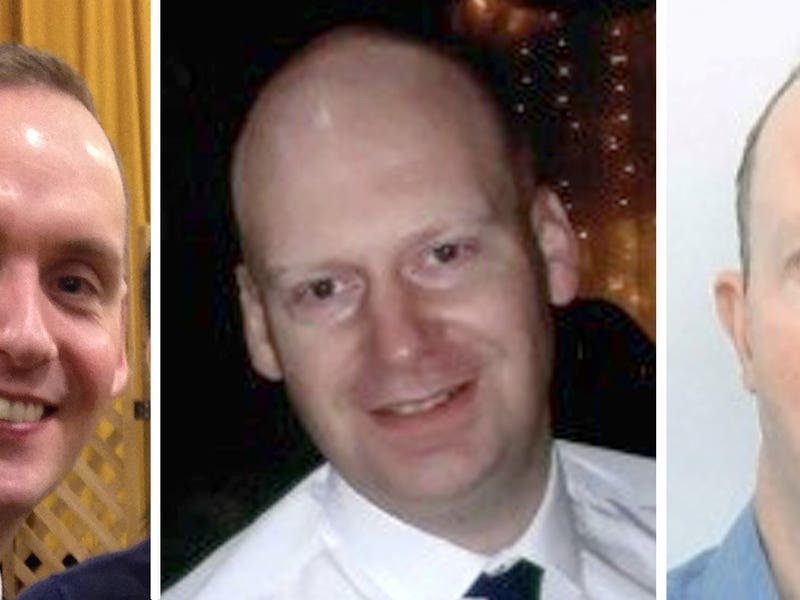After months of pressure to provide more detail about how savings will be made, Chief Minister John Le Fondré has given the JEP access to his most senior civil servants who are leading the change programme to explain how they plan to deliver more efficient services.
Mr Parker said that he wanted Islanders to understand both the challenges and opportunities that the government faced in delivering a better deal for taxpayers.
He and his team hope that providing more information will reassure people that the approach being taken is both sensible and evidenced using the data available.
Over the course of the next few days in the run-up to the States debate next week on the Government Plan – the most important policy document of Senator Le Fondré’s premiership – readers will hear from Mr Parker; his chief operating officer, John Quinn; Mark Grimley, the group director of people and corporate services; Steven Mair, group director, performance accounting and reporting; and Jonathan Williams, the director of business change.
The Government Plan sets out the direction of travel for the government over the next four years. It includes detailed spending plans for 2020 and outline plans for the three years after that. The total savings target over the four years is £100 million, with £40 million to be delivered next year and £20 million in each of the following three years.
As part of the JEP’s Focus on Efficiency series and in anticipation of next week’s crucial debate, Senator Le Fondré will be the subject of this weekend’s Saturday Interview.
The series will shed light on some of the challenges and inefficiencies that the team has discovered since Mr Parker took up his post in January 2018, including poor contract management and procurement practices across government departments, the lack of data needed to underpin a fact-based approach to managing an organisation and rationalising services, and a sub-optimal approach to managing sickness and overtime.
The government team is adamant that significant savings can be made by bringing management in several areas up to scratch, which they say in some cases falls well below standards which are the norm in other jurisdictions, and by ironing out wasteful practices – but, crucially they claim, without negatively affecting front-line services.
They have also examined the demographic make-up of the public sector workforce and considered ways in which more flexibility and different policies for training, development and vacancy management could be used. That includes a new approach to those in the public sector aged 55 and over, a proposal which has received fierce criticism, but which Mr Grimley insisted had been misunderstood. (See story on page 1.)
Mr Parker said: ‘It’s worth just saying that the backdrop of this was the Council of Ministers’ decision that they didn’t want this to be a slash and burn approach to job cuts. It’s really, really important that they wanted us to look at different areas of public expenditure.
‘It was a conscious decision. You could do this quite quickly without any issues if you were going to take a burning platform on which you reduce your FTE [full-time equivalent] numbers.’
In some cases, Mr Parker’s team say, it has been a matter of looking forensically at the cost of seemingly small items which, on review, can deliver significant savings.
Mr Mair explained, for example, that Jersey hospitals were using a pillow which costed 20% more than the one used in the UK because it ‘had a little less air’ in it, but he said that the two were indistinguishable.
‘It was an example of not refreshing, not looking, not thinking,’ said Mr Mair. ‘So do we want to pay an extra 20% to have a bit of air taken out of your pillows? The rest of the UK survives without it.
‘There’s a whole raft of others – I’ve got examples here. Simply by picking up the phone we saved £25,000 on a £200,000 contract, because we rang them up and said, “This price looks a bit steep. Anything you can do for us?” “Oh yes,” they said, “we’ve not been in touch, but we can”.’
Mr Quinn said that the starting point for the efficiency programme was to look at how things could be done differently across the whole of government.
‘So, for example, we take an activity that happens in every department and look at how we can get a consistency around that,’ he explained. ‘We also asked departments to look at activities which are unique to that department that we might be able to do differently and find efficiencies within.
‘We didn’t set departmental targets, and this is Charlie’s point. This isn’t a case of ‘‘Right, £100m is one-eighth of £800m, so everyone gets a target of 12.5% cut to their budgets,’’ because that’s not how we did it.
‘We built it bottom-up, based on those two principles of cost-cutting activity and individual efficiencies, and we started taking a thematic approach.
‘When we kicked off, we had these 20 boxes where we said, these are things you might look for, for efficiency.’
Those boxes included taking out tiers of management and reducing the number of people employed to the point where the service can still be delivered, while being mindful of how the demand for a service can be reduced and alternative delivery models.
Mr Quinn said: ‘If we are delivering a service face to face, could you deliver it remotely? – things like that. So we looked at all of those boxes and we asked each department to take those boxes and think about what they could do as well as what we did centrally. And we narrowed it then down to essentially four themes.
‘One is around a modern efficient workforce, not just about slashing and burning staff numbers. It is about thinking about how do we manage the workforce differently and considerable work about processes and systems. Can we think of better ways of doing things? And we have some good examples.
Another is around commercial operations. We buy a lot of stuff, but are we buying it in the most efficient way? We have contracts, some of which are very old and haven’t been rolled over with our competition. Because of the old departmental structure we bought systems departmentally, so we have multiple relations with Microsoft, for example. If you simply took the best of those contracts and applied it across the whole of the government you would save money. Things like that.
‘We have looked at the organisational structures and how government is actually organised to be most effective. Underpinning that, we are using data. We use data to drive some of this decision-making. Again going back to the commercial bit, we looked at all our major contracts – when were they reviewed, what are the unit costs, when we have two contracts with similar services, how do they compare? A lot of data work. We have looked at communications around the organisation to get staff involved in delivering some of these ideas.
‘Underpinning this with the culture programme in Jersey about changing the way we run the organisation, about how it manages and recognising that ultimately efficiencies have to be delivered through the front line. We can sit in this room and draw up a bunch of efficiencies, but the behaviours have to change. The culture programme is critically important.’






